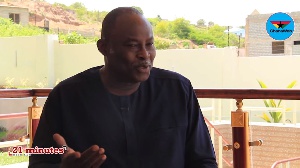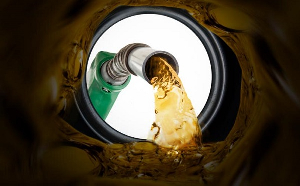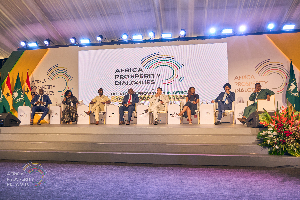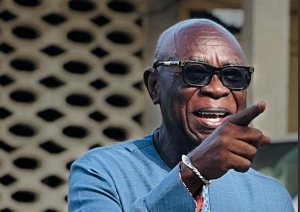Former Minister for Trade and Industry, Ekwow Spio-Garbrah has stated that the NDC government handed over a fully functioning Komenda Sugar factory to the current NPP government, as such the Akufo-Addo-led administration should be blamed for the redundant state of the factory.
In an interview with GhanaWeb editor, Kwabena Kyenkyenhene Boateng on ‘21 minutes with KKB’, Spio-Garbrah said this was not the first time an NPP government is collapsing an institution it inherited from a previous government.
According to him the NPP “have generally had a problem with what they inherit from another government”.
“If you go back to the Nkrumah era where Nkrumah left them almost 300 state-owned enterprises they consciously allowed many of these factories to collapse,” he added.
The NDC flagbearer hopeful stressed that sugar was produced from the Komenda Sugar factory when it was completed in 2016 in the presence of many including the media.
Asked where the sugar was now, he said, “the sugar is in the ground now, the factory is not working but it’s not the NDC government which is in power now…we handed over to them a completed sugarcane processing factory worth about $35million based on the loan of the Indian government so their job was to make sure the factory works”.
Spio-Garbrah was also concerned about the maintenance of the equipment in the factory which he said was the latest technology.
“I hope they are oiling the machines and maintaining them even if they are not letting it operate,” he said.
The Komenda Sugar Factory
The Komenda Sugar Factory which was set up to provide 7,300 direct and indirect jobs, remains shut, two years after its inauguration.
The factory has the capacity to crush 1,250 tonnes of sugarcane per day.
Ghana spends about $200 million to import sugar annually and the new factory was expected to change the situation. Ghana's annual sugar requirement, as of 2016, was estimated at 375,000 tonnes.
The factory was also expected to generate energy for its production activities and produce by-products such as molasses for the alcohol industry. But many challenges, including the unreliable supply of sugar cane for continuous processing after the preliminary test run, stifled the leading operations of the company, leading to its closure a few weeks after inauguration.
In November 2017, the government initiated processes to revive operations of the factory.
The Minister of Trade and Industry, Mr Alan Kyerematen, told Parliament that a $24.5million Indian Exim Bank credit facility was being secured to develop and implement a plantation and out-grower scheme in a bid to provide raw materials for the factory.
Sugarcane farmers and the people of the Komenda-Edina-Eguafo-Abirem municipality in the Central Region were hopeful that efforts by the Ministry of Trade and Industry to reactivate the multi-million dollar factory will bear fruits.
The enthusiasm among farmers that they will get a ready market for their produce at the factory is fast waning.
The chiefs and people of the area feel disappointed with the current situation, as the government still cannot concretely tell them when the factory will start operations.
The Komenda Sugar Factory, built at a cost of $35million from an Indian Exim Bank facility, was inaugurated by then President John Mahama in May 2016, amid pomp and ceremony.
General News of Sunday, 6 May 2018
Source: www.ghanaweb.com
NPP has a history of intentionally collapsing state-owned factories - Spio-Garbrah
Entertainment
















